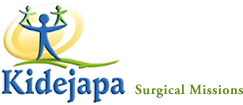Ecuador Mission
The annual Ecuador Surgical Mission is a nine to ten-day trip each year, including travel time to Ecuador and approximately seven days of surgery on site. Each year two to four surgical teams make the trip. In 2010 Kidejapa also went to Haiti to serve following the earthquake.
Kidejapa is an organization composed solely of volunteers. Mission team members – surgeons, anesthesiologists, nurses, medical assistants and technicians – are not paid for their work. They donate their vacation time for these missions because of their commitment to the children and the belief that every child deserves a chance to have a normal life.
In addition to performing surgery, the Kidejapa physicians teach local Ecuador physicians some of the techniques involved in performing these types of operations. The education these physicians receive each year during the surgical mission trains them to perform these operations.
The Process
Literally months of planning are involved in organizing the surgical mission. This effort includes gathering and packing surgical supplies and instruments needed for the trip as well as handling travel arrangements and logistics. All supplies, instruments, bandages and medications must be brought from the U.S., since it is not available there.
Once on-site in Ecuador, the teams spend the first days interviewing potential patients to determine which ones may be the best candidates for surgery. Because the local people know in advance of the teams’ arrival, they line up for several days prior to arrival in hopes of being among those chosen.
The next five to six days are spent operating – 12 to 16 hours per day – in less than ideal surgical facilities. But the reward comes in the results – sometimes more than 100 operations are performed during the missions.
The Commitment
The volunteers who go to Ecuador – surgeons, anesthesiologists, nurses, medical assistants and technicians – are not paid for their work. They donate their time for these missions because of the great need in these countries.


